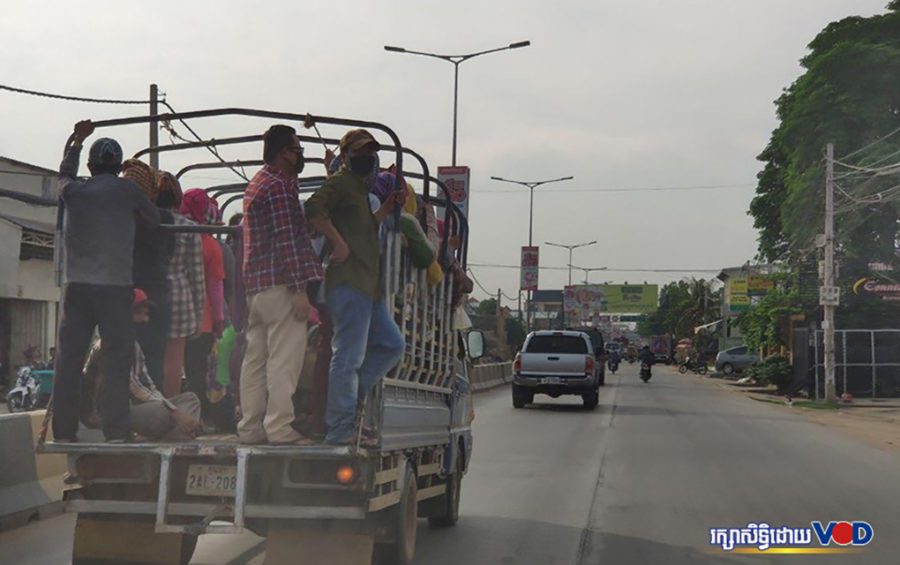Heng Sopheaktra, a tuk-tuk driver in Phnom Penh, said that before Covid-19, he owed debt to just one bank. But after the disease continued to spread, and Phnom Penh was locked down, he was in debt to six creditors.
The 41-year-old said the reason for his ballooning debt was loss of income, especially during the lockdown. To pay for rent on his house, his water and electricity bills, daily living expenses and payments for his tuk-tuk, he borrowed money, he said.
In May and June, nearly 400 garment workers surveyed by the U.N. also reported that personal finances, including not being able to pay back loans, was their most common concern, alongside the immediate health and safety of families due to Covid-19.
A survey by World Vision conducted in March and April similarly showed reported troubles around finances. In Phnom Penh, 95 percent of households said they had seen a drop in incomes, and, overall, 7 percent said they had no income at all, up from 1 percent pre-Covid-19.
In a joint statement late last week, several NGOs and labor groups called for continued support for the jobless and those in informal work.
One of the main issues raised by the 22 civil society groups was “the rise of new debt to solve the problems of daily life,” and they called for help with utility bills and suspending debt repayments.
Yang Sophorn, president of the Cambodian Alliance of Trade Unions, one of the statement’s signatories, said regaining an income was foremost on people’s minds.
“At this stage, when I meet with most local members, they don’t care about much. Primarily, they think of earning money to support their children, so [they] search for any means as long as they can earn money to survive at this stage. They do everything,” Sophorn said.
Government spokesperson Phay Siphan said anyone facing food shortages should contact their local administrations, which would help them out.
Debt, however, was a matter between borrowers and creditors, he said, and the government had already allowed banks and microfinance institutions to restructure payments.
“First, when they went to borrow money from the bank, the government representative did not participate. They are responsible for themselves in front of the bank. The Royal Government has prepared and requested the bank owners, who are the creditors, to coordinate with their debtors already,” Siphan said.
A World Bank report issued last week called for more stimulus for poor households to support an economic recovery.
“Further boosting pro-poor and growth-enhancing public investment including cash-for-work projects, is critical for economic recovery,” the report said. “Relief continues to be needed, especially for poor and vulnerable households.”
The World Bank also advised incentives to spur investment and boost exports, as the Covid-19 shock “threatens to lock the economy into an underemployment equilibrium.”
If factories and other workplaces continue to be hit by Covid-19 outbreaks, households would struggle to repay loans, “putting the entire financial sector under increased stress,” the report cautioned.
Overall, the report projected 4 percent GDP growth this year under a “baseline” scenario of Covid-19 remaining under control and market confidence being restored. But the economy could grow just 1 percent if there are repeated lockdowns and travel restrictions, it said.













